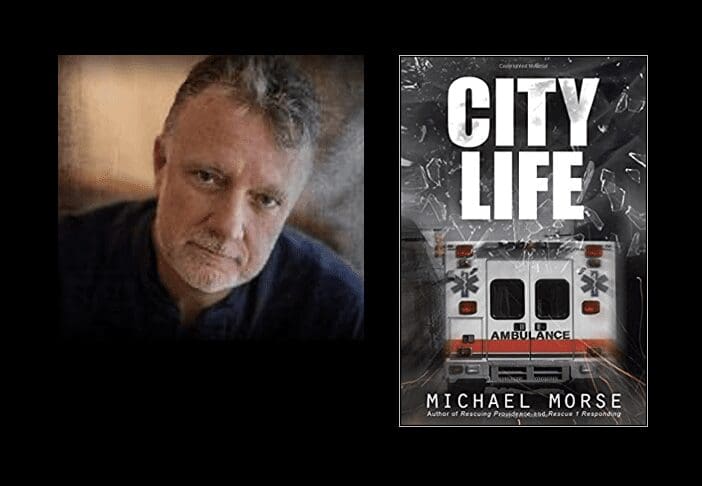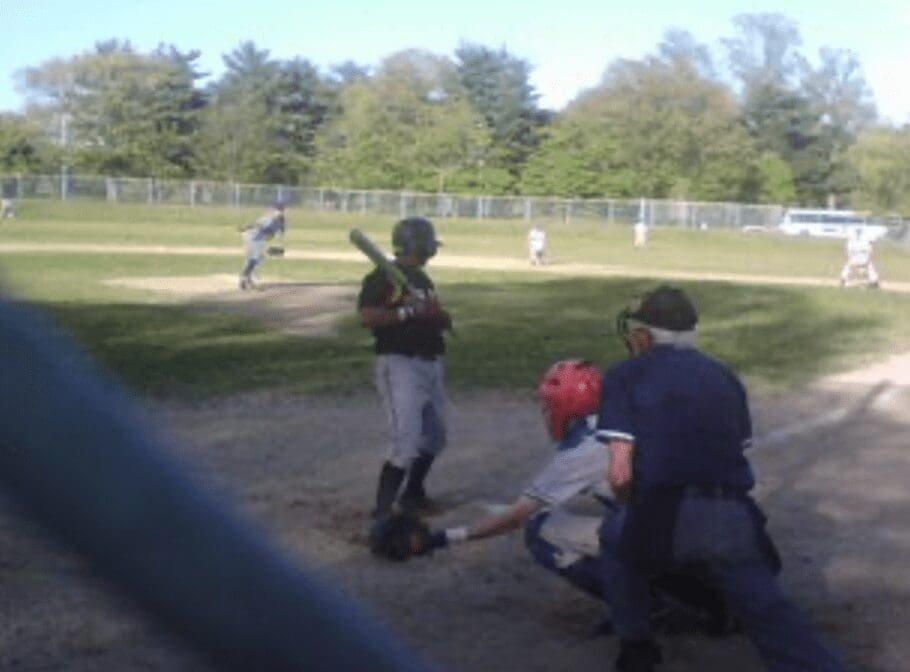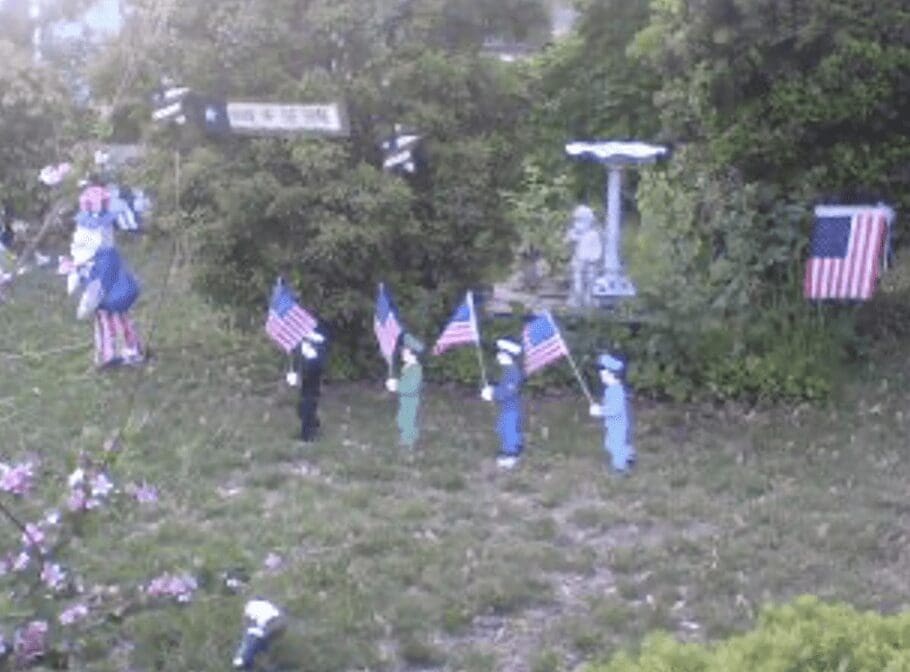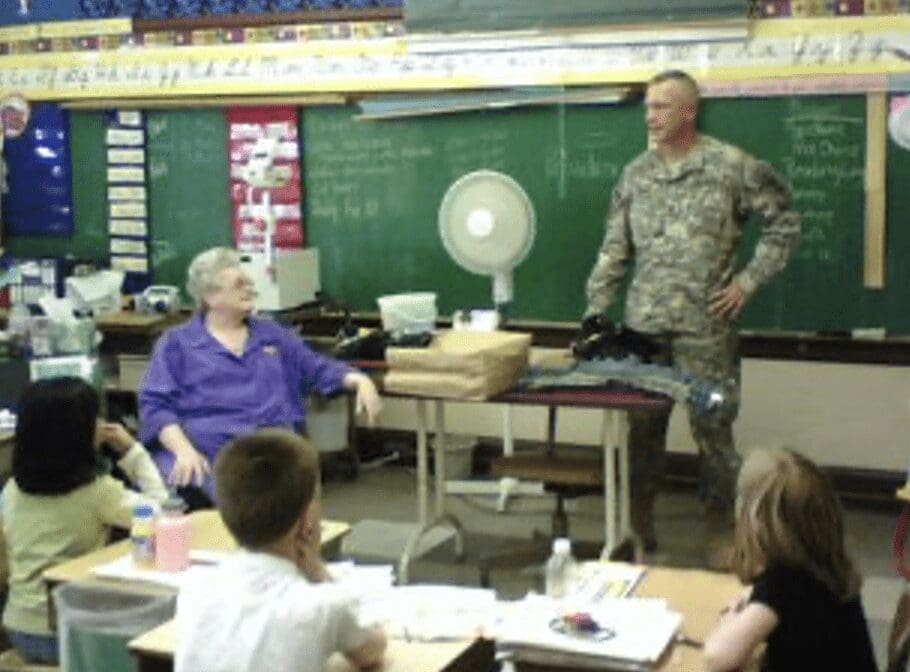Search Posts
Recent Posts
- RI Veterans: Did you know? 25.04.24 (100th for Louis Dolce, events, resources) – John A. Cianci April 25, 2024
- Business Beat: Bad Mouth Bikes takes home 3 national awards April 25, 2024
- Rhode Island Weather for April 25, 2024 – John Donnelly April 25, 2024
- We Cook! Mill’s Tavern’s Cajun North Atlantic Swordfish, Mango Salsa, Cilantro Citrus Aioli April 25, 2024
- The Light Foundation & RI DEM’s 4th Annual Mentored Youth Turkey Hunt a success April 25, 2024
Categories
Subscribe!
Thanks for subscribing! Please check your email for further instructions.

Read With Us: CITY LIFE – a book by Michael Morse – Chapter 9
by Michael Morse, contributing writer
Chapter 9
Different Worlds
At 0330 hours, Rescue 1 responded to a home on Blackstone Boulevard for a fifty-two-year-old female suffering from back pain. We arrived at 0335. The groundskeeper met us at the end of the driveway and escorted us past a Bentley and a Mercedes, through a beautifully landscaped entryway, and to an ornate fifteen-foot door. Once inside the foyer, a grand staircase adorned with valuable works of art led us to our patient. She was a pleasant woman, lying on her back in the hallway grimacing in pain. It appeared she slipped a disc. Her dog, a purebred, perfectly manicured non-shedding poodle-thing, stayed by her side but didn’t threaten. We put the lady on a backboard and carried her through her million-dollar house and into the rescue. She was a good sport, enduring our teasing as we transported her to Miriam Hospital for treatment.
An hour later we received another call, less than a mile away. The three-decker was dark, the stairs creaky. A man in his fifties sat at a lonely kitchen table waiting for us to check his blood sugar. He had been feeling weak and worried he might pass out and nobody would find him. He lived alone, his apartment smaller than the entryway of our last patient’s home. The man was a gracious host; he seemed to enjoy the company. He lives a solitary life here on the outskirts of the opulent East Side mansions in a modest home on what I’m sure is a small fixed income. His glucose level was within normal range. He wished us good-night and locked the door behind us.
Two patients, two different worlds less than a mile apart. They both seemed happy in their place, neither concerned with, or even aware of, the other world that exists right outside their doorway.
Eye Opener
He was keeled over a fallen utility pole, his ass in the air and his face on the ground. His associates were putting the finishing touches on a half-gallon jug of vodka.
“He’s drunk,” said one of them as we stood there mustering the energy to take him away. It was seven thirty; we had been going nonstop for twenty-four and a half hours. The first of the month coupled with a full moon puts money in the pockets of crazy people.
“No shit,” I said, then grabbed the guy’s belt and dumped him onto the stretcher. Their sunrise party continued while we wheeled our patient off the field. The half gallon was almost empty; the remaining two might make it until noon before they passed out.
Mark got the guy’s vital signs while I filled out the report. Things were mostly normal; the only potential problem was his glucose level, 58. He slept peacefully while we transported him to Rhode Island Hospital.
We rolled him through the doors of the ER and transferred him to a hospital stretcher. While I gave my report, one of his eyes popped open.
“Fifty-four-year-old male found sleeping in a field, no sign of trauma, history of alcohol abuse, admits to drinking, vitals stable but his blood sugar is a little low.”
The drunk guy opened his other eye and said in a gravelly voice, “My sugar’s low and my alcohol is high!” He then laughed himself into unconsciousness. They put some orange juice on his stretcher and put him in with the rest of them.
Must the Show Go On?
I really don’t know what to make of this. We got a call this morning for a man down. Get there and find a fifty-five-year-old guy dead in bed. The family was hysterical, nothing we could do. The guy’s wife looked familiar; I found out later that she works in one of the area emergency rooms. Their son’s wedding is supposed to be today, family from out of town was at the house, the flowers, band, reception, limos, cake, and everything else was waiting. The guy had no significant history, just partied the night before at the rehearsal dinner. If I was the guy who died, I’d want the show to go on. What do you think?
Raid
Somebody at 177 Julian called 911, that much we know. When the guys from Ladder 6 arrived, nobody answered the door. They did what any self-respecting ladder company would do—they proceeded to force their way into the house. One of the guys went for a window while the others worked on the back door. They popped it open, right into the forehead of the little old lady who was hiding behind it. She yelled for a while but nobody could understand her. Eventually her daughter came along and explained things.
A few months ago the house was raided by the police. They had the wrong information and were looking for drugs that weren’t there. The poor lady thought we were the cops coming to raid the place again. It’s a good thing she wasn’t armed or a real tragedy could have occurred. Eventually things got back to normal. The guys from Atwells Avenue went back to their station to finish their lunch, although I heard later that the Explorers, six teenaged kids who had visited the station, ate every crumb. No rescue was needed, the lady and her daughter went back inside, hopefully with no hard feelings. We never did find out who called us, another unsolved mystery in a city full of them.
Retired
“Rescue 1 and Engine 13, respond to Homer Avenue for a diabetic.”
5:30 a.m. Cinco de Mayo was thankfully over for this year. Thirty-four runs in thirty-eight hours, most alcohol related. This should be our last call, then three days off. Engine 13 was first on scene.
“Engine 13 to fire alarm, advise rescue we have a fifty-seven-year-old male, confined to bed with a blood glucose of 12.”
Great.
“Rescue 1, received, on scene.”
My partner for the night, Steve Whalen, usually assigned to Engine 13 but detailed to Rescue 1 for the night because of lack of manpower, got the stair chair from the back compartment and I grabbed the blue bag.
“I’ve been here before,” said Steve as we made our way into the house.
A hospital bed was set up in the living room, a bag of food attached to a pole stood nearby. The patient, a young-looking fifty-seven-year-old, was diaphoretic and unconscious. I decided to treat him immediately. We started an IV after a few misses and got the D-50 ready. The man’s family stood by silently as we worked. Steve had the medication ready, I pushed the contents of the vial through the IV line and into the patient’s bloodstream.
“When was the last time anybody saw him awake?” I asked.
“Last night,” said his wife.
Her husband’s eyes started blinking, then stayed open. He stared into space for a few minutes before regaining consciousness.
“Has he been eating properly?” I asked. His wife pointed to the feeding tube. Enough said.
“What hospital does he go to?” I asked.
“I don’t want him to go to the hospital. We can take care of him here.”
“He should go,” I argued. “He needs to have blood work done, maybe his medications need tweaking.”
“Please, let him stay,” said the man’s wife. I got the refusal form ready for her to sign. “No transport against medical advice.”
The family thanked us, greatly appreciative of the job we did. Their father, husband, and friend was conscious again, drinking a glass of juice. On the way back to the station, Steve told me the rest of the story.
“He fell down his cellar stairs about two months ago,” he said. “Nobody knew it but he was there for hours. He had a major head bleed. He was going to retire this year after twenty-five years working at the prison. He’s paralyzed, probably for life.”
I forgot how tired I was as I walked up the stairs back to my office, thankful just to be able to make the steps. I have a bad habit of looking toward the finish line instead of enjoying the ride. Retirement will come soon enough. I hope it’s worth working for.
Note to Self . . .
When you spot a building fire while driving down Route 10, figure out where, or even kind of where, said fire is located before getting on the radio and letting the entire shift know you have no idea whatsoever where you are going.
The fire was in Olneyville. The guys from Atwells Avenue, Engine 14 and Ladder 6, saw the smoke from their station and got there right before we did. They had it under control in less than a half hour, a pretty good job considering the house was nearly fully involved when I saw it from the highway.
Benjamin
Our patient lived above a restaurant on Wickenden Street, one of the more “hip” spots in Providence. Traffic was tight, the sidewalk busy while people shopped and relaxed at the many coffee shops, art galleries, and antique stores that line the street. We had to block the travel lane when we stopped the rescue at our destination.
As soon as we stopped, three Japanese sushi chefs escorted an older guy from their doorway. He was limping; our patient. He owned the building and rented the lower floor to a popular Japanese restaurant. From the concern showed by his tenants he was a well-liked landlord. I knew right away I was going to enjoy this call—the guy had character written all over his craggy face. He hobbled up the rescue steps, no easy task for somebody half his age with two good wheels, and sat on the stretcher.
“What’s the matter?” I asked him.
“My leg is swollen and my toe hurts. It’s been going on for weeks. I’m leaving for Europe tomorrow, I hope I can make the trip.”
I took a look at the leg and toe. His left calf and shin were twice the size of the right and his big toe was bright red.
“How are you going to get around Europe on that?” I asked.
“Don’t know. Can you take me to the VA?”
We took his vital signs and got going. Ben was a Navy man, WWII vet, disabled. He was there at Normandy on D-Day, lost some friends as wave after wave debarked from his ship into the slaughterhouse. When that job was done he went to the Pacific and was training to parachute onto Japan when the bomb was dropped and the war ended. He spent a lot of the war with the Merchant Marines, a group who suffered staggering losses during the war. He survived the war; sadly, his brother did not. Ben told me about him.
“He was a gifted musician and brilliant Brown grad whose life was cut short in the Black Forest during the Battle of the Bulge.” I thought of my own brother, fighting the war in Iraq and the loss my family would suffer if he doesn’t make it home. All of these years have passed yet Ben’s eyes still filled up when he mentioned his brother.
“My father is a Navy vet, Korea, and my brother is in Iraq,” I mentioned, proud of my family’s accomplishments. We talked a little more during the trip to the VA. Thankfully for us, Ben lived through the war. He taught art at the Rhode Island School of Design, displayed his work at galleries throughout Providence, and is a successful restaurateur.
I can only imagine what contributions to society have been lost, greatness unknown, and words unspoken. How much more music will we never hear, art we will never see, or lives we won’t be able to share and enjoy before the world makes peace with itself?
God, I hate this war. Five soldiers dead, three missing this morning west of Baghdad.
Ball Three

Nothing better on a beautiful spring night than a ball game! It would have been better if Renato’s oldest son’s team didn’t get whooped. Doesn’t matter, though. We enjoyed an inning and a half before a call came to take us back to reality.
John

As I walked Zimba and Lakota along the shore of Gorton Pond, I came across these two, a father and son feeding the swans. Jeff, my friend and sometime partner on Rescue 1, spends a lot of time with his newborn son, John. He was born prematurely right around the time me and Al delivered another baby inside the rescue. He now lives in a controlled environment at Women and Infants Hospital.
I’m sure Jeff and Maria long for the day when they can take their baby home, hold him and see his face unencumbered by breathing devices. It must be torture for them to watch their child grow, close to them yet still distant in the hospital’s sterile atmosphere. Jeff’s holding up well, though unfortunately for him he had to learn the frustration and pain of fatherhood before experiencing the joy. That joy is coming, buddy, and it is well worth the wait.
Crackhead
He was handcuffed, sitting in the back of a police cruiser on a rainy Wednesday night. His eyes rolled back in his head and drool ran off his chin onto a white T-shirt that said in bold black letters, “Grow Up.”
“What happened to him?” I asked one of the cops.
“He might have swallowed a rock.”
“How long ago?”
“No more than ten minutes.”
I reached in and helped our newfound patient to his feet. He stumbled into the rescue, claimed he had chest pain, blurred vision, difficulty breathing, and a migraine headache. He started to thrash around the stretcher, moaning and drooling some more. When his convulsions stopped we took some vital signs. BP 148/98, heart rate of 120, glucose 104, SpO2 98 percent.
“What’s wrong with him?” somebody asked.
“Crackhead.”
When we were done our patient went catatonic. Better for me—it kept him quiet during transport to Rhode Island Hospital.
Graduation!
Friday, May 18, 2007.
Happy ending!
I received a phone call and thank-you card from Kellie’s family yesterday. It is my pleasure to tell you that she will graduate from Providence College this Sunday. Despite the hardships she endured and long road to recovery, she made the dean’s list. Congratulations, Kellie!
Not many are able to recover from bacterial meningitis, let alone finish school. The students at North Providence High School where Kellie interned had no idea of the difficult road their new mentor traveled to get to them. They and her future students will benefit from the wisdom and strength only one who fought and won such a courageous battle can pass on.
Thank you, Patti Coughlin and family. Their thoughtfulness is greatly appreciated. I passed on the well-wishes to the guys who were there with us on that Tuesday in September. It is great to know that the Providence Fire Department is held in such high regard by the Coughlins. With all the terrible things we see daily, their story reminds us that we do make a difference, and people appreciate us. In their own way, they helped us as much as we helped them.
Twilight Zone
He showed up with his new girlfriend at his son’s mother’s house to take her to work. His son’s mother said something about the girlfriend. They fought in the stairway of the apartment. The son’s mother’s sister woke up, heard the fighting, and tried to stop it. The father choked both women and smashed the sister’s head into the doorjamb, causing a three-inch laceration that would require stitches. The son’s mother ran downstairs and called 911.
By the time we got there, the cops had both parents in cuffs in back of separate cruisers. The present girlfriend still sat in the father’s car in front of the baby’s mother’s house. The girlfriend in the car needed to get home to babysit for her son’s father’s other son. Two beautiful boys, three and four years old, watched all of this, one walking around the apartment with a confused look on his face, the other being held by one of the cops, a monster of a man who nobody in their right mind would antagonize. I thought Rod Serling from The Twilight Zone was going to materialize from thin air and say, “You unlock this door with the key of imagination. Beyond it is another dimension . . .”
Renato got the baby’s mother into the rescue and cleaned her head laceration. I made arrangements with the police to drop the boys off at their grandmother’s house on the way to the emergency room. Once inside the safety of the rescue, I found that the twenty-one-year-old mother was a pleasant young lady whose only worry was that she wasn’t going to be able to shop for her son’s birthday party this Saturday. She wanted him to know that he was special on his special day. She worked part time at Burger King, and part time at the local youth center as a lifeguard.
I wish The Twilight Zone door would open and take these people away from here, into a place where they have a chance. This neighborhood is going to swallow them whole and spit out the broken pieces. It’s only a matter of time.
Wake Up!
They came from Coventry, a suburb of Providence, looking for some heroin. They found it, more than they bargained for it turns out. Witnesses saw a car stop in a parking lot, dump a guy out one of the back doors, then speed away. The guy dumped in the parking lot wasn’t breathing. Friends like these . . .
Engine 10 was first on scene responding from the Broad Street station, less than a mile away. Rescue 1 is located about five minutes away, and we were speeding toward the scene when Captain Cunha radioed the message.
“Twenty-year-old male, respiratory arrest, possible OD.”
“Rescue 1, received.” I put the mic back into the cradle and let Renato drive. Two minutes later we arrived on scene. The guys from Engine 10 had established a line and pushed 2 mg of Narcan into the vein of the unconscious kid. A minute later he started breathing on his own. A minute after that he opened his eyes and looked around, no idea what had happened or how close to death he was. Had his “friends” dumped him in a field or deserted street he would not have lived to tell the tale to his “friends” back in Coventry.
We transported him to Rhode Island Hospital. When the Narcan wears off, sometimes the patient goes back into respiratory arrest. At first he was polite and thankful; by the time we got him to the hospital he was back to normal, asking how long he was going to be stuck at the hospital. He wanted to get back to Coventry.
If he comes back to Providence, I hope he doesn’t end up in a body bag.
Meeting
Meeting somebody who has made a huge emotional impact on you is difficult enough; doing so in front of news cameras is altogether different! I met Kellie and her family on Saturday. Channel 12 News did a story about her, describing her ordeal and miraculous recovery. It was a good story, and I’m glad I took part in the production. Had I not, I never would have met the Coughlins. It was a meeting I will never forget, one of the highlights of my career. We all survived the TV ordeal, and when it was over Kellie and her clan went to dinner at one of Providence’s best restaurants. I got back in the rescue and headed toward home, feeling better than I had in a long time. I may never see them again, but now that our paths have crossed I think we are all better because of it.
Grounded
“Rescue 1 to fire alarm, are the police on the way?”
“They’ve been notified.”
“I’ve got an angry, intoxicated man with a big rock giving me a hairy eyeball.”
“The police are on the way.”
“Can you have them step it up? Disregard, I have a visual.”
I rolled the window down a crack and yelled at the man holding the rock:
“Put down the rock!”
He sneered at me and reared his arm back. I rolled the window back up and waited for the glass to shatter. When it didn’t, I rolled the window back down a crack and repeated:
“Put down the rock!”
The maniac saw the cops coming, threw the rock to the curb, and started to walk away. The officer grabbed him and brought him back to us.
“Did he threaten you guys?” the cop asked while frisking his prisoner, smashing a crack pipe on the street, then dumping the guy’s lighter. No rocks, he must have smoked it all.
Before I could answer, a friend of the rock-throwing, crack-smoking, vodka-guzzling nut showed up.
“I’ll take him home, he’s just messed up,” said the man’s friend. Suddenly he looked like a sad old man, beaten and dejected. He was out of crack, out of money, no more booze, and about to be arrested.
“Nah, I don’t think he even knows what he’s doing,” I told the police.
The cop let him go, making the man’s friend promise to take him home and keep him there.
Hearing Voices

I was leaving for work at sunrise, Saturday, Memorial Day weekend, seventy degrees, low humidity, not a cloud in the sky. A little voice told me it might be better to stay home.
Deserved Rest
Welcome home, Bob! It took three days to get from Iraq to Rhode Island. Fifteen days leave during a five hundred–day deployment in a war zone doesn’t seem like much but I’m sure he’ll take it. Three months to go when he gets back. Maybe the war will be over by then.
Doubt it. It looks like this is going to go on for a long, long time. Eleven more soldiers killed this week, no idea how many injured. It’s easy to forget that for some the war is more than news reports or fodder for political debate. Thanks again to everybody making the sacrifice and making us proud.
I’m hoping to get a round of golf in with Bob. We’ll see if Mary and the kids let him out of their sight for long enough.
Captain Vernon’s House

We were staged at Public and Prairie waiting for the police to secure the scene of a suicidal person when I noticed this. Turns out the property is owned by retired Providence Fire Department captain Ray Vernon’s mother and sister.
No suicide, just somebody looking for attention.
Father of the Year
The guy drove an $80,000 Mercedes. Apparently, his two-year-old daughter wasn’t worth the fifty bucks he would have had to spend on a car seat. She was injured by the side-impact air bags that deployed when the car collided in an intersection with a van. The beautiful little girl had only a scrape on her shoulder, but it could have been a lot worse.
A two-year-old in a speeding, unregistered, uninsured Mercedes driven by a guy with no license without a car seat.
Her father talked nonstop on his cell phone in the back of the rescue while we cared for his daughter. She was a real charmer, smiled the whole time while her dad talked to whoever about the money he was going to make from the “stupid bitch” that hit him. He wanted to know if we could stop by his daughter’s mother’s place of work so she could go to the hospital with the girl and he could “take care of some business.”
I couldn’t wait to get him out of the truck so I complied; it was only a little out of the way. Cindy stopped the rescue at a hair salon where the girl’s mom worked. She got into the back accompanied by another beautiful girl, this one almost four. Dad got out, I slammed the door shut. He was about thirty years old, smart enough to be driving an $80,000 car but not bright enough to register it or insure it. His license was suspended also, but he was going to “make some money.” The cops promised me they would meet us at Hasbro Children’s Hospital and make an arrest. I hope they follow through.
“The problem with the human gene pool is there is no lifeguard.” Whoever came up with that one got it right.
Visit

Yesterday the once notorious, feared, and downright incorrigible “Morse Brothers” visited Chester Barrows School in Cranston as guests of “Gramma Muggle,” a.k.a. Pat Blackman, friend and fierce supporter of our troops and the Providence Fire Department.
Her “Little Muggles” have been sending letters and treats to the soldiers in the 1207th for a while now, much appreciated I’m told. My brother, Bob, did a great job entertaining the kids and answering an endless torrent of questions. He presented the school with a certificate of appreciation from his unit, signed by the big shots, as well as a Muslim prayer rug embroidered with thanks from the 1207th in English and Arabic. Unfortunately, a visit to Stone Hill School wasn’t possible due to time restraints, but Bob presented Gramma Muggle with a certificate and prayer rug for them as well.
As I sat off to the side, I was happy to let Bob have the spotlight. He and his fellow soldiers have earned all the praise and respect that comes their way. It was a good day for us and the kids as well. I think that seeing the person they wrote their letters to gave the kids a better understanding of the sacrifices being made by folks a lot like their own parents, siblings, aunts, and uncles.
___
Read past Chapters, 1-7, here:
___

Michael Morse, [email protected], a monthly contributor is a retired Captain with the Providence Fire Department
Michael Morse spent 23 years as a firefighter/EMT with the Providence Fire Department before retiring in 2013 as Captain, Rescue Co. 5. He is an author of several books, most offering fellow firefighter/EMTs and the general population alike a poignant glimpse into one person’s journey through life, work and hope for the future. He is a Warwick resident.

